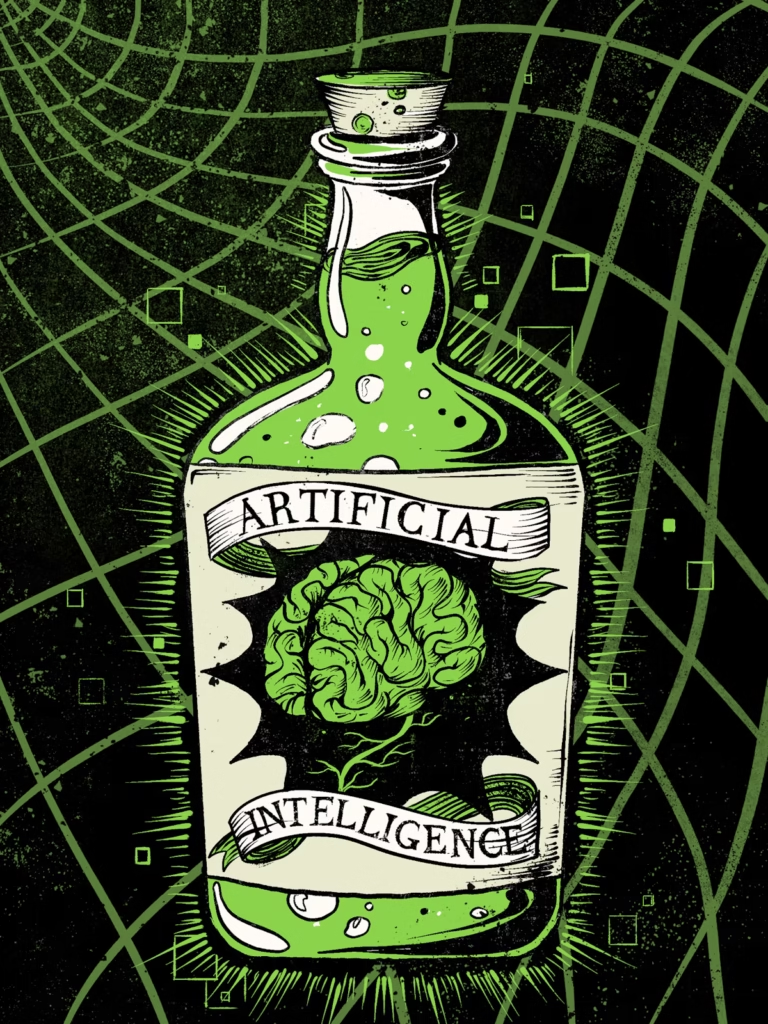The dark comedy is set to hit theaters on October 31st.
CEOs would be nothing without the labor of their (typically) underpaid employees, and the unfairness of that reality seems to be what’s causing all the chaos in director Yorgos Lanthimos’ upcoming film, Bugonia.
A remake of South Korean director Jang Joon-hwan’s 2003 feature Save the Green Planet, Bugonia zooms in on the life of Teddy (Jesse Plemons), a conspiracy-minded beekeeper who works for a massive pharmaceutical company run by Michelle (Emma Stone). As one of the company’s many workers who spend their days laboring to make a fraction of Michelle’s salary, Teddy sees a lot of parallels between himself and the bees who live only to serve their queen.
Teddy knows that he, like a beehive’s drones, is expendable in the grand scheme of Michelle’s plans as a CEO. Teddy’s frustrations and delusions about an alien invasion convince him that Michelle probably isn’t a human. And that’s enough for him to hatch a plot to kidnap his boss under the auspices of saving the planet.
Though the trailer skews a little whimsical, it’s fairly clear that Lanthimos and writer Will Tracy are telling a dark story about people pushed to the edge by economic inequality. The movie also seems like it’s going to touch on how people not having proper access to quality mental health care is a very real societal problem, which is probably going to make Bugonia feel timely as hell when the film hits limited theaters on October 24th before its wide release on October 31st.
We get into a secret partnership between the New Orleans Police Department and Project NOLA, a private nonprofit organisation that owns and operates an extensive network of cameras blanketing New Orleans. For years, Project NOLA has been running live facial recognition through their cameras and sending automated notifications to the police when a match is made using Project NOLA’s privately maintained list of “wanted people.” By going through an unofficial private partner, police have been able to sidestep and undermine legal prohibition on their use of AI technologies like facial recognition. We get into the history of using New Orleans as a testbed for policing technology, the dangerous precedent being set by this public-private relationship, and how this surveillance nightmare is on track to become even more expansive and unleashed thanks to potential policy changes.
••• Police secretly monitored New Orleans with facial recognition cameras www.washingtonpost.com/business/2025…-new-orleans/
••• A bad facial recognition match costs Jefferson Parish Sheriff Joe Lopinto’s office. See how much www.nola.com/news/jefferson_par…-728b3783cb93.html
••• New Orleans City Council proposed ordinance cityofno.granicus.com/MetaViewer.php…meta_id=741682
Standing Plugs:
••• Order Jathan’s new book: www.ucpress.edu/book/978052039807…c-and-the-luddite
••• Subscribe to Ed’s substack: substack.com/@thetechbubble
••• Subscribe to TMK on patreon for premium episodes: www.patreon.com/thismachinekills
Hosted by Jathan Sadowski (bsky.app/profile/jathansadowski.com) and Edward Ongweso Jr. (www.x.com/bigblackjacobin). Production / Music by Jereme Brown (bsky.app/profile/jebr.bsky.social)
He was the pied piper of a loose community of DIY artists homesteading on New York City’s waterways, which he used as his canvas and stage.

Propaganda and deceit are a feature of AI, not its downfall.
Why does it matter how we talk about artificial intelligence? Some, mainly tech firms and their useful idiots, maintain we are about to immanentize the eschaton (which translates roughly as: dissolve all of society’s problems). Others insist we are summoning a false god in the form of an artificial general intelligence that will destroy civilization. Those feelings of awe and terror aren’t particularly assuaged by the numbers: Tens of billions of dollars are raised each year by startups in this sector—incumbents hope to raise trillions more.
Elon Musk’s massive xAI data center is poisoning Memphis.
It’s burning enough gas to power a small city, with no permits and no pollution controls.
Residents tell us they can’t breathe and they’re getting sicker.
Colleges and universities have been trying to fight against students using tools like ChatGPT to do class assignments and communicate. But here’s a twist: Professors and educators are now turning to A.I. to prepare lessons, teach, and even grade students’ work. We talk with NYT tech reporter Kashmir Hill about these conflicts on campus. Also, she shares what she learned after giving over her life for a week to A.I. tools, which wrote emails for her, planned her meals, chose what she should wear, and even created video messages for TikTok using her likeness and a clone of her voice.
The maniac who blew himself up outside a Palm Springs fertility clinic is our latest High Desert dingbat to make the national news. Luckily, those injured in the Palm Springs terror attack have been treated and released from the hospital. But who bombs fertility clinics? Meet America’s worst new subculture, the violent anti-natalists, and their new hero from Twentynine Palms.
This is EPISODE #243: THE MAD BOMBER OF TWENTYNINE PALMS with geographically appropriate soundscapes by RedBlueBlackSilver. Written & hosted by Ken Layne. Listen on the radio in Joshua Tree and across the Mojave High Desert on Z 107.7 FM, 10-11 p.m. Fridays.
sources:
Into the Wild, by John Krakauer
The Journal of Chris McCandless
The Wild Truth, by Carine McCandless